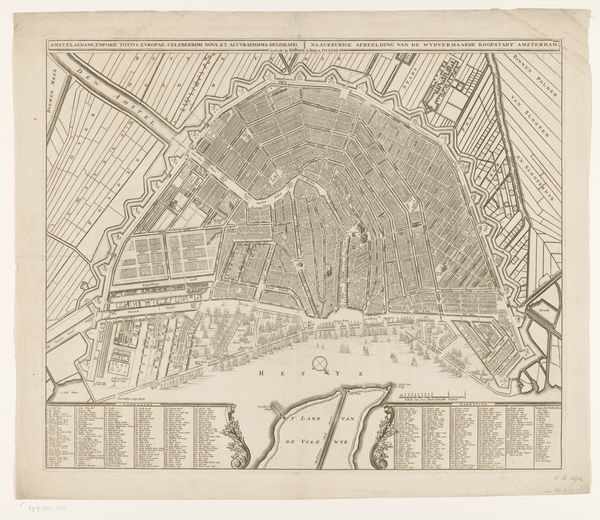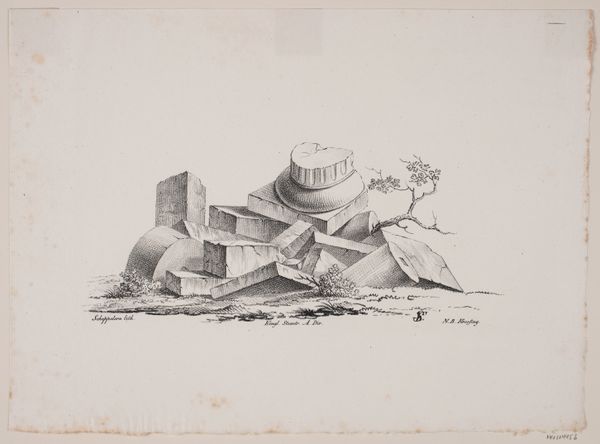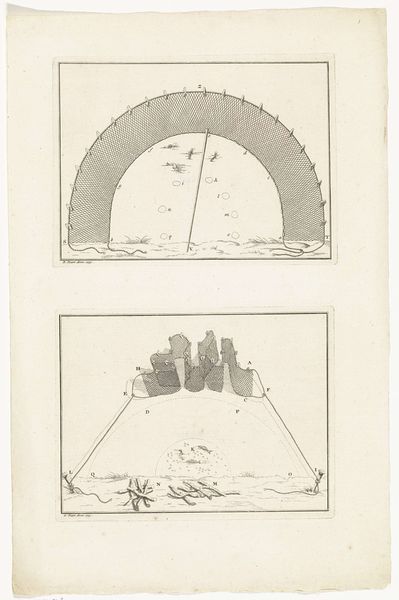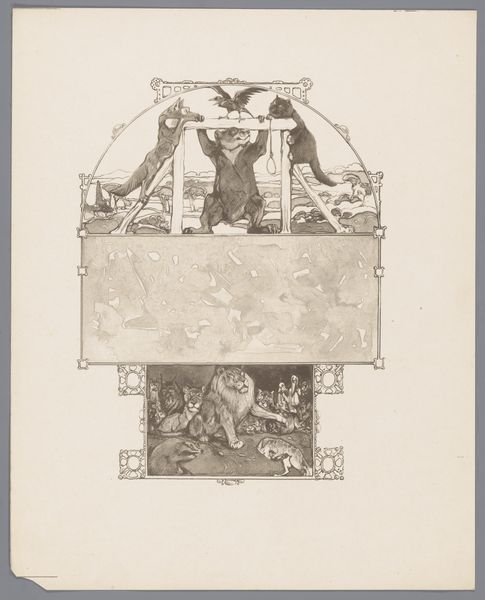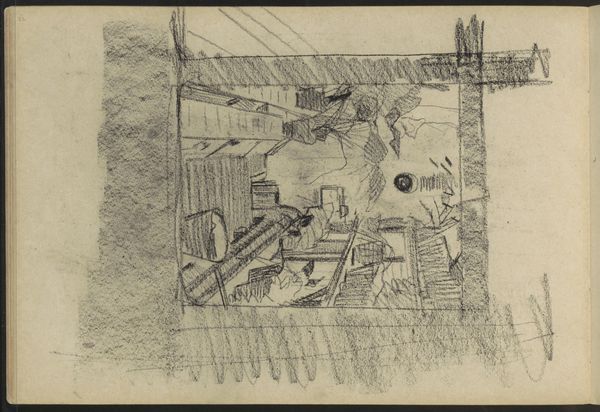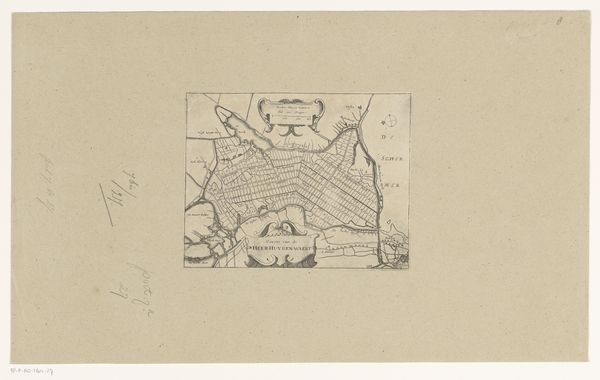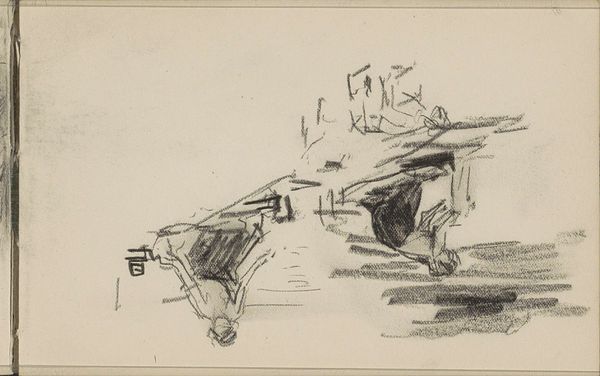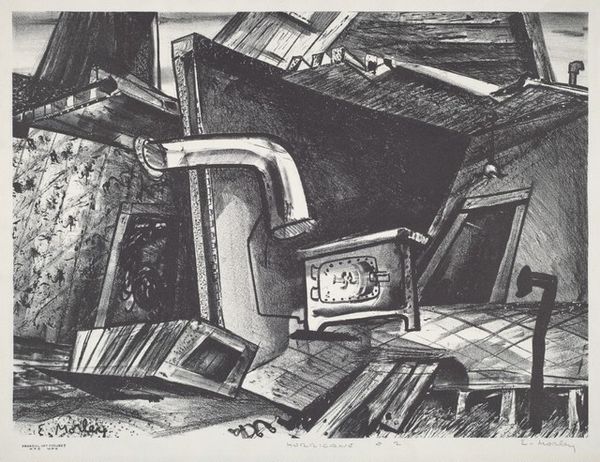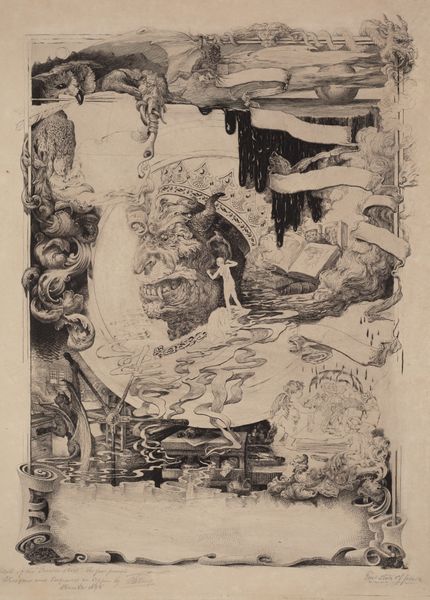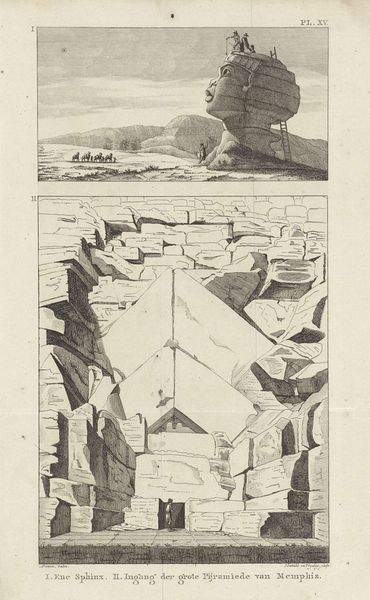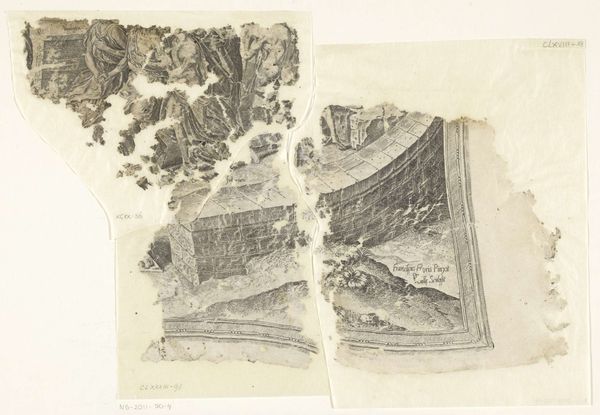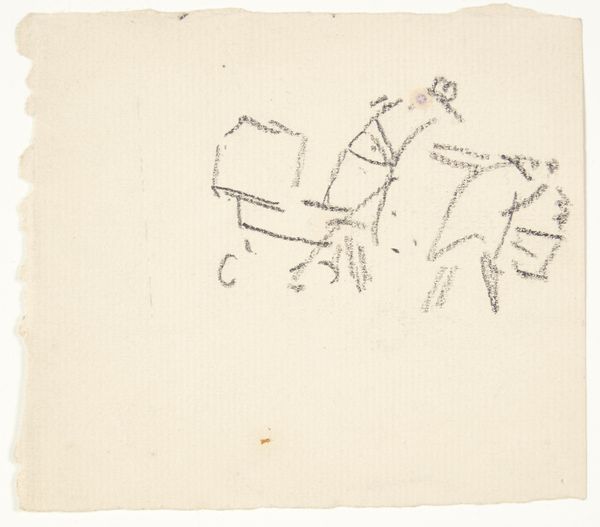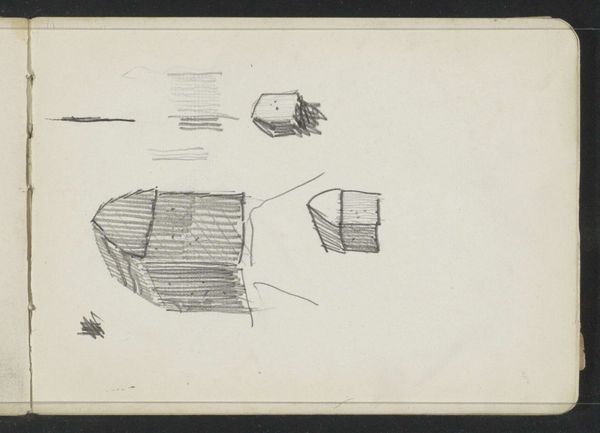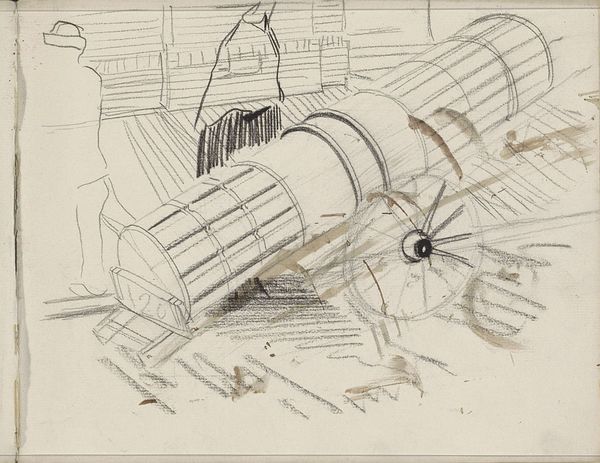
drawing, print, pencil
#
drawing
# print
#
perspective
#
form
#
11_renaissance
#
geometric
#
pencil
#
line
#
northern-renaissance
Dimensions: sheet: 2 9/16 x 4 in. (6.5 x 10.2 cm)
Copyright: Public Domain
Curator: Peter Flötner's "Perspectival Drawing with Three Cubes," from 1528. It's currently housed at the Metropolitan Museum. First thoughts? Editor: Stark. Stripped down. It feels almost unsettling in its simplicity. Three cubes—brilliantly rendered—in what looks like a desolate landscape. An early exploration of perspective perhaps, but the mood… I find it quite bleak. Curator: Yes, that rawness is part of its appeal, I think. Flötner was working during the Northern Renaissance, when artists were intensely preoccupied with both detail and proportion. This piece strikes me as almost obsessively methodical, a deep dive into the properties of space and form using line work and pencil techniques. Editor: Methodical, absolutely, but it feels like more than just geometry. These cubes, perched on what looks like rough terrain, could represent systems, societal structures…precariously balanced. Considering the tumultuous religious and social shifts of the era, it's tempting to see a political undercurrent, however subtle, about the structures upholding society and who has access to the view through that upper cube. Curator: Intriguing thought! I see the cubes more as representations of pure form, Platonic ideals rendered visible. But perhaps Flötner, as a product of his time, couldn't entirely separate geometry from the unease and shifting sands of his social reality. There's also something strangely hypnotic about the shading he employs; each line carefully placed to construct solid mass. Editor: The lack of embellishment focuses your attention, forces you to look at the foundational elements, those fundamental cubes on which so much is built. Maybe Flötner is subtly asking us what happens if the forms on which we’ve built systems of thinking about the world, shift, are impermanent. And perhaps it’s not bleakness, but unflinching observation, not without the seeds of social and conceptual revolution. Curator: Perhaps. Its power certainly resides in this ambiguity, this almost defiant austerity. It’s a stark reminder that sometimes, the most profound questions are best posed through the simplest of forms. Editor: And that those simple forms might also carry complex questions. I’m walking away with new perspective, thanks to, well, Flötner's perspective.
Comments
No comments
Be the first to comment and join the conversation on the ultimate creative platform.
